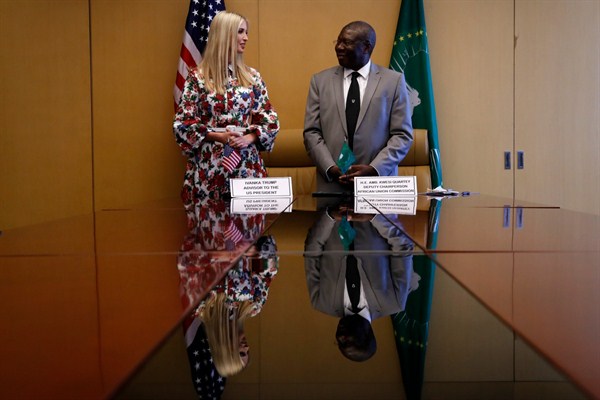During the Cold War, American policymakers frequently pushed nonaligned countries to take sides. The Central Intelligence Agency fomented coups against governments that flirted with communism and the Soviet Union, or that just drifted too far to the left for comfort. The State Department threatened to cut aid flows to countries that voted too often against U.S. priorities at the United Nations. Could sub-Saharan Africa find itself caught in the middle again if a cold war with China breaks out?
In a speech at the Heritage Foundation last December, President Donald Trump’s hawkish national security adviser, John Bolton, launched a new initiative called “Prosper Africa” that he said was aimed at promoting trade and commercial ties “to the benefit of both the United States and Africa.” But there are a number of reasons for African governments to be concerned about what the administration really has in mind.
First of all, Bolton cast the goal of increased economic engagement as something necessary for “safeguarding the economic independence of African states and protecting U.S. national security interests,” not as something helpful for African economic development. He pointed to the growing influence of “great power competitors,” China and Russia, which he suggested were investing in Africa mainly “to gain a competitive advantage over the United States.” While there are certainly valid concerns about some of China’s foreign aid and lending practices in Africa and other developing countries, African governments have generally welcomed Chinese aid and investment. It’s not at all clear they would agree that this is a competition where they must choose one side or the other.

